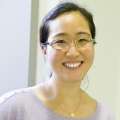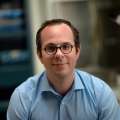Precision medicine in oncology has helped transform cancer care. With this approach, physicians analyze a person's genetic makeup to precisely diagnosis and treat the disease, giving patients better health outcomes. Most genetic analysis focuses on the cancer itself, but this approach leaves out a crucial component: hereditary factors.
Now, researchers in the have launched a new study aimed at unraveling inherited genetic predispositions to cancer in women with a family history of the disease. By examining an individual's inherited genetic makeup, it will better identify their risk of developing cancer, particularly for under-represented minority women.
“Studies have indicated that historically marginalized communities often face barriers to cancer screenings and genetic testing, further exacerbating health disparities,” said , director of Cancer Population Genetics at the UCLA Health Jonsson Comprehensive Cancer Center and professor and vice chair of Obstetrics and Gynecology. “Under-represented minority women, in particular, have been less likely to undergo genetic testing for cancer predisposition, leading to missed opportunities for early detection and prevention.”
The study, called , is focused on understanding genetic, environmental, socio-economic, and other determinants of cancer in women with a family history of the disease, with the goal of improving access to and the interpretation of genetic testing information for underserved populations. By integrating clinical data with electronic health records, the project aims to enhance compliance with cancer screening recommendations for those at higher risk and reduce healthcare disparities.
The approach involves conducting genetic counseling and testing, including both clinical and research germline sequencing, and analyzing tumor samples when applicable. Germline genetics looks at an individual's genetic makeup that is inherited from their parents. These genetic traits are passed down from one generation to the next and contribute to the genetic makeup of offspring.
Understanding germline genetics is crucial in identifying genetic factors that may contribute to an increased risk of developing certain conditions, particularly cancer.
"We're not just looking at genes, we're looking at the broader context in which cancer risk develops," said , associate professor of pediatrics and hematology/oncology at the and principal investigator on the study. "By incorporating clinical and research germline sequencing, tumor testing, dietary and exercise assessments, and with the establishment of a biobank for longitudinal studies, we're aiming to provide a holistic understanding of cancer risk factors and empowering individuals, and their families, with knowledge to make informed decisions about their health.”
The findings hold the promise of transforming cancer care for women, particularly those from underrepresented communities, and narrowing the gap in health outcomes, noted , professor of urology and human genetics at the David Geffen School of Medicine at UCLA and director of cancer data science at the UCLA Health Jonsson Comprehensive Cancer Center.
“Everyone with a family history of cancer naturally worries about their own risk,” said Boutros. “HERSTORY is a huge step towards helping women understand that, and begin to develop their own personal strategies for cancer prevention and treatment.”
Take the Next Step
If you think you might be eligible to enroll, please contact Jenny Lester at .






